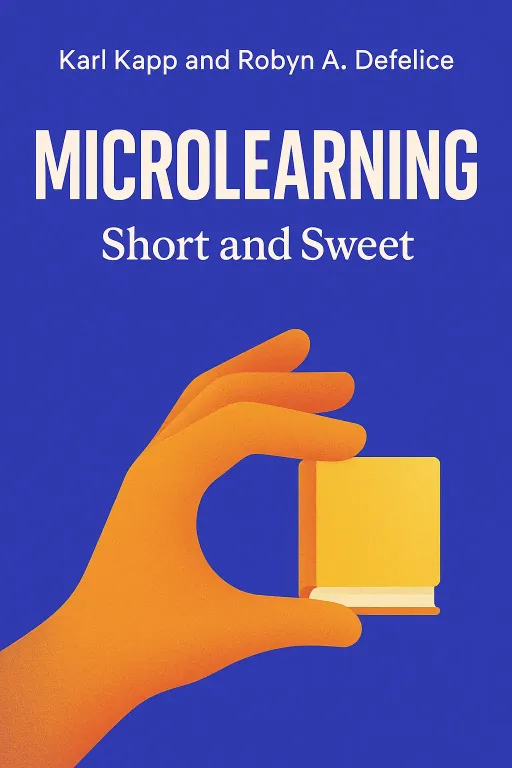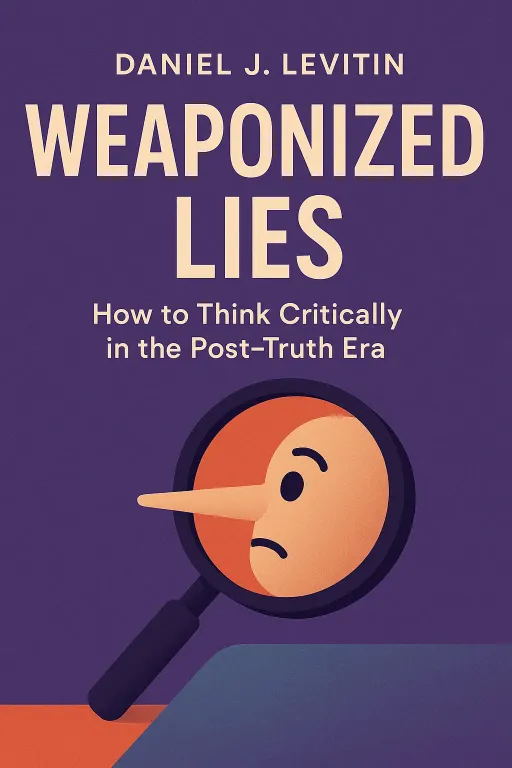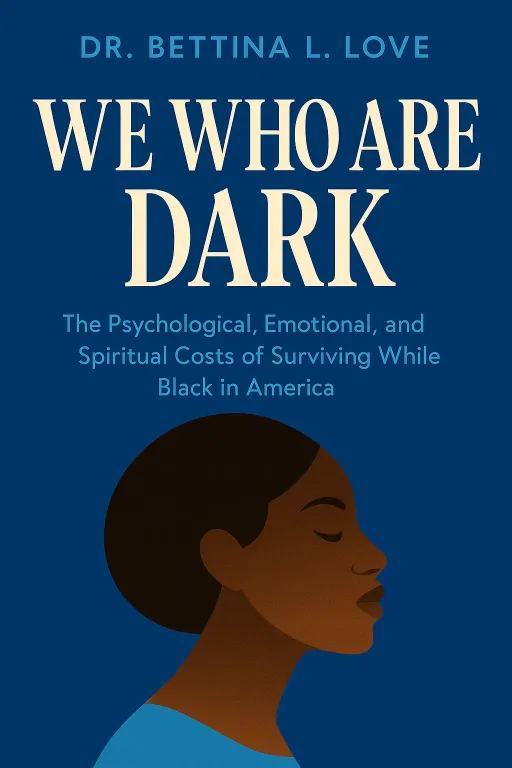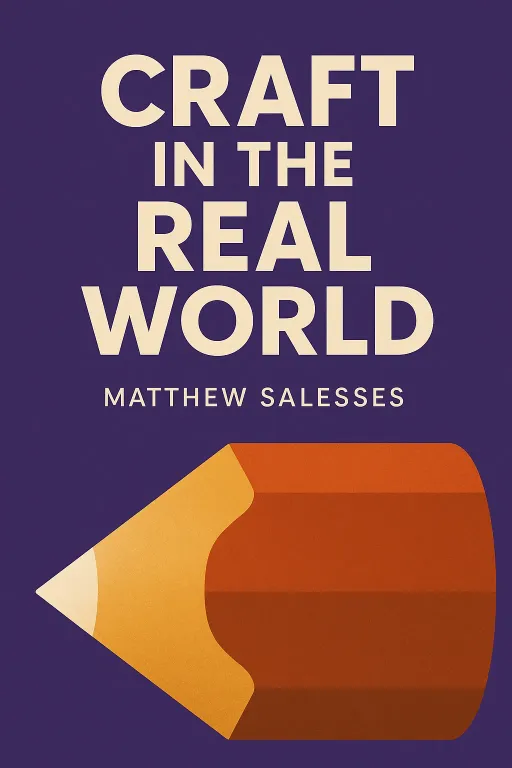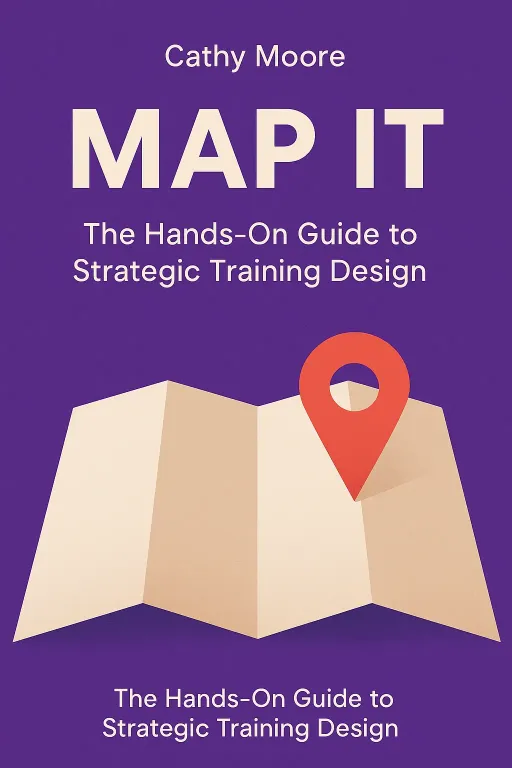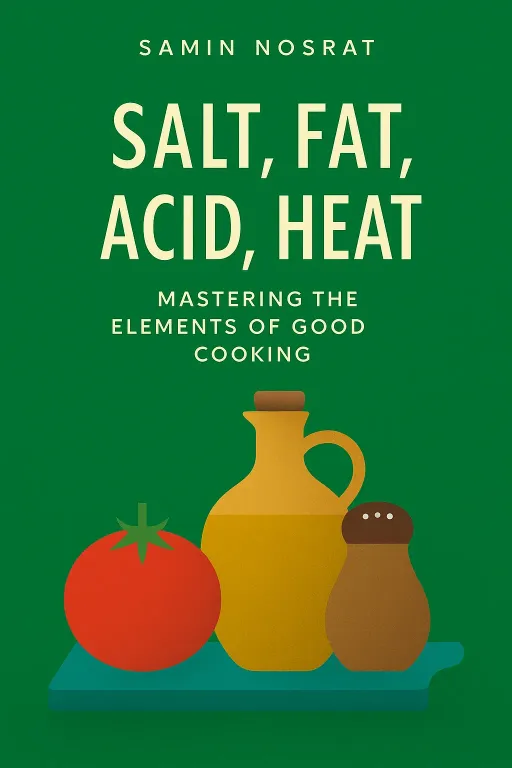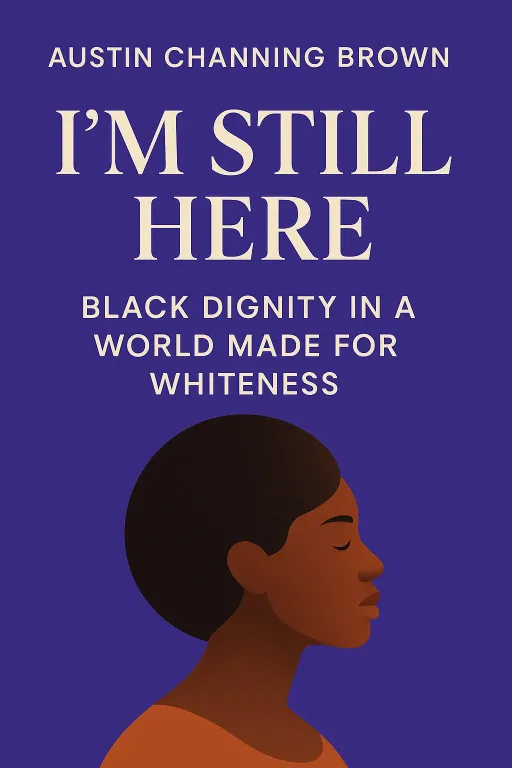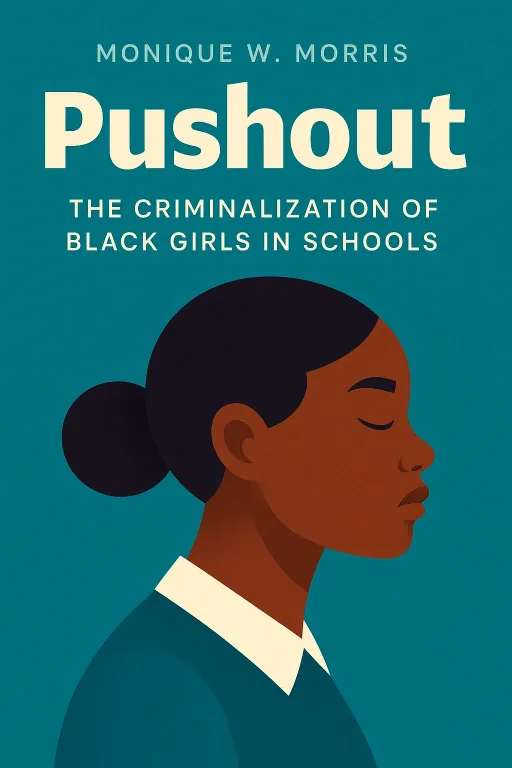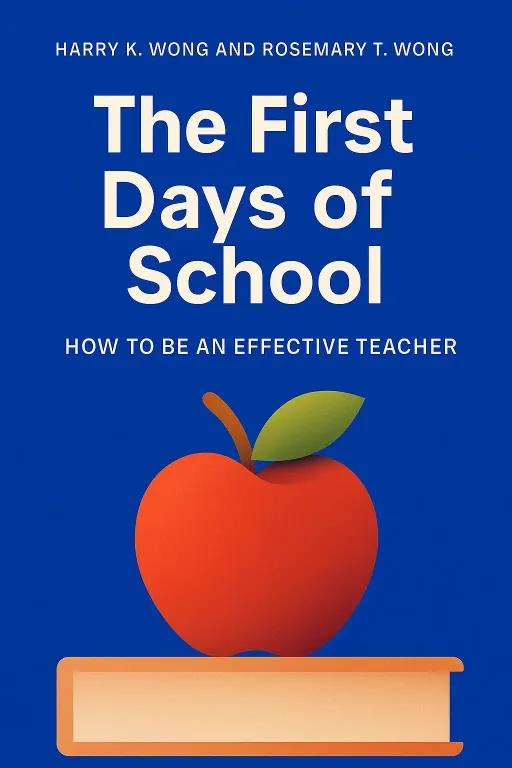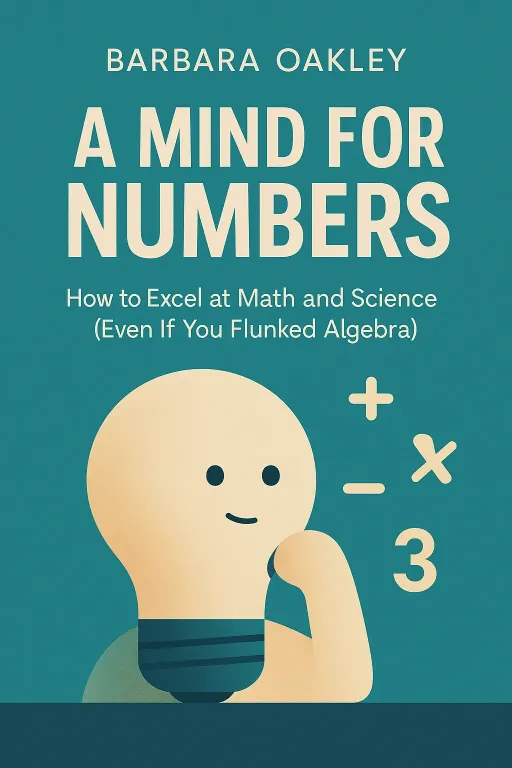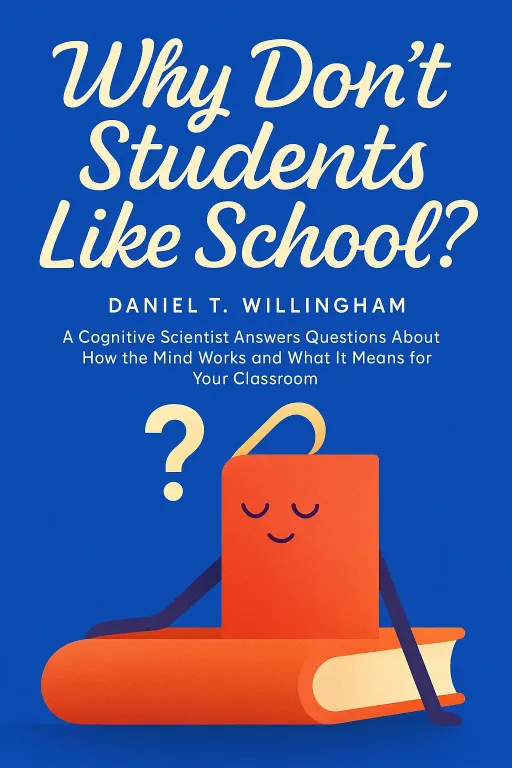
The Residue of Thought
9 minA Cognitive Scientist Answers Questions About How the Mind Works and What It Means for Your Classroom
Golden Hook & Introduction
SECTION
Laura: Sophia, what’s the one thing you remember most from a school project you did as a kid? Sophia: Oh, that's easy. The giant sugar-cube pyramid I built for a project on Ancient Egypt. I distinctly remember the sticky mess, the structural collapse of the north face, and the sheer number of ants it attracted. I remember nothing about the pharaohs. Laura: That is the perfect example. It reveals the central, uncomfortable truth we're exploring today: your memory isn't a recording device; it's just the leftover residue of what you actually think about. Sophia: 'Residue of thought.' That’s a surprisingly poetic way to describe my ant-infested pyramid. Where does that idea come from? Laura: It's the heart of the book Why Don’t Students Like School? by Daniel T. Willingham. And what's so compelling is that Willingham isn't an educator by training; he's a cognitive psychologist at the University of Virginia. He spent the first part of his career studying the brain's mechanics—memory, learning, the hard science—before turning his attention to the classroom. He brought a scientist's eye to questions that teachers have been wrestling with for decades. Sophia: A scientist in the classroom. I like that. It feels like we need more of that. So, what did his scientist’s eye reveal about my sugar-cube pyramid disaster? Why did I remember the sugar and not the history?
The Brain's 'Laziness' and the Secret to Real Memory
SECTION
Laura: Because, according to Willingham, your brain did exactly what it was designed to do: it avoided the hard thinking and focused on the more concrete, immediate problem. The fundamental premise of the book is that, contrary to what we'd like to believe, our brains are not designed for thinking. Sophia: Whoa, hold on. That feels incredibly cynical. Are you saying my brain is lazy? I feel like I'm thinking all the time. I enjoy learning new things, I enjoy a good puzzle. Laura: And that's the paradox! We do enjoy the thrill of solving a problem. We get a little dopamine hit from a mental success. But thinking is slow, it's effortful, and it's unreliable. So our brain’s default setting is to rely on memory and habit to navigate the world. It conserves energy. We only engage in that hard, effortful thinking when the conditions are just right—when a problem seems challenging, but ultimately solvable. Sophia: Okay, so it's not that we hate thinking, it's that we hate failing at thinking. Or thinking without a reward at the end. Laura: Precisely. And because we often misunderstand this, we design learning experiences that completely miss the mark. Willingham tells this fantastic story about a fourth-grade teacher planning a unit on the Underground Railroad. A really dedicated, thoughtful teacher. Sophia: I'm listening. Laura: This teacher wanted students to feel a connection to the lives of runaway slaves. So, for an activity, he had the students bake biscuits, because biscuits were a staple food for them on their journey. The goal was for them to think, "Wow, this is what they had to eat, this was part of their struggle." Sophia: That sounds like a great, hands-on idea. Very well-intentioned. Laura: Totally. But what did the kids actually think about for that hour? They thought about measuring flour, about how to mix the shortening, about whether their friend was making a bigger mess than they were. They were thinking about the mechanics of baking. So when the teacher later asked what they learned, they remembered everything about making biscuits and almost nothing about the Underground Railroad. Sophia: That is my sugar-cube pyramid to a T! I was thinking about architecture and structural integrity, not about the societal structure of the Old Kingdom. The activity completely hijacked the learning goal. Laura: Exactly. And that’s the power of Willingham's principle: "Memory is the residue of thought." You don't remember what you were told, you don't remember what was on the slide, you don't even remember what you were supposed to be learning. You remember what you spent your time actively thinking about. Sophia: It makes you rethink every "fun" project, doesn't it? The fun has to be baked into the core concept, not just a sugary coating around it that you lick off and then ignore the middle. Laura: That's the perfect analogy. The thinking has to be about the meaning. Which, of course, brings up the next huge, controversial question.
The Knowledge Paradox: Why You Can't 'Just Google It'
SECTION
Sophia: Okay, so we need to make students think about the right meaning. I'm on board. But that brings up another huge debate. In today's world, with all the information at our fingertips, shouldn't we be focusing on teaching how to think—you know, critical thinking, problem-solving, creativity—instead of just cramming their heads with a bunch of facts they can Google in two seconds? Laura: This is probably the most challenging and important argument in the entire book, and it runs completely counter to a lot of modern educational theory. Willingham's principle, based on decades of cognitive research, is this: Factual knowledge must precede skill. Sophia: Hold on. That sounds incredibly old-fashioned. Are you telling me we need more rote memorization? That's the very thing that makes kids hate school—memorizing dates and state capitals. How can that be the answer? Laura: It's not about memorizing random, disconnected facts. It's about building a rich, interconnected web of knowledge in your long-term memory. Think of it like this: your working memory, the part of your brain that does the active thinking, is tiny. It can only hold a few pieces of information at once. Your long-term memory is vast. The only way to think about complex ideas is to pull chunks of information from that vast long-term memory. If there's nothing in there, you have nothing to think with. Sophia: So you're saying knowledge isn't the opposite of skill, it's the fuel for it? Laura: It's the fuel, the platform, the entire operating system. You can't think critically about a topic you know nothing about. The book details this landmark study that completely upends how we think about "reading skill." Sophia: Okay, I need to hear this. Give me the example. Laura: Researchers took a group of junior high students and tested them on two things: their general reading ability and their knowledge of baseball. Then, they had them all read a story describing a half-inning of a baseball game. The story was full of phrases like "the runner bluffed a steal" and "the pitcher checked the runner at first." Sophia: Right, stuff that only makes sense if you know the game. Laura: Exactly. And here's the shocking result. The students who were "poor" readers but knew a lot about baseball understood the story far better than the students who were "good" readers but knew nothing about baseball. Sophia: Wow. So "reading ability" isn't some generic, transferable skill. It's completely dependent on your background knowledge of the topic. The kids who knew baseball could fill in all the unwritten gaps, they could visualize the game, they understood the strategy. The "good" readers were just decoding words without meaning. Laura: You've got it. The knowledge allowed them to "chunk" information. "The batter sacrificed to move the runner" isn't a string of eight words to them; it's one single, meaningful concept. This frees up space in their working memory to think about the story's bigger picture. Sophia: That is a huge insight. It makes the whole "skills versus knowledge" debate feel... well, silly. You can't have one without the other. Laura: And that's Willingham's point. You can't teach someone to "think like a scientist" without teaching them a lot of science. You can't "think like a historian" without a deep well of historical knowledge. The facts are what give the skills a world to operate in.
Synthesis & Takeaways
SECTION
Laura: So when you put these two powerful ideas together, a really clear picture of learning emerges. First, we only remember what we are made to think deeply about. And second, that deep thinking is fundamentally impossible without a rich foundation of background knowledge to draw upon. Sophia: It completely reframes the goal of education, and really, any kind of self-improvement. It’s not about making things superficially "engaging," and it’s not about teaching abstract "skills" in a vacuum. It's about the slow, careful, and deliberate process of building a world of knowledge inside your head, piece by piece, so you actually have something to think with. Laura: And that's the ultimate takeaway for me. The modern world tells us that knowledge is disposable because it's all stored externally, on the internet. But Willingham's research shows the opposite is true. Knowledge isn't just 'out there' in the cloud; to be useful, it has to be 'in here,' woven into the fabric of our long-term memory. It's what allows us to understand, to connect, to create. It’s the invisible architecture of our own intelligence. Sophia: That’s such a hopeful way to look at it. So for anyone listening—a teacher, a parent, or just someone trying to learn something new—the question to ask isn't just 'How can I make this fun?' It should be, 'What will this activity actually make me think about?' That feels like a much more powerful place to start. Laura: I love that. And it makes me want to ask our listeners: What's a school project you remember, and looking back, what did it actually make you think about? Was it the intended lesson, or was it the structural integrity of sugar cubes? Share your stories with us on our social channels. We'd love to hear them. Sophia: This is Aibrary, signing off.
